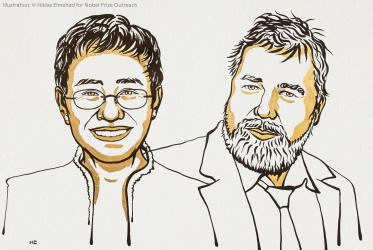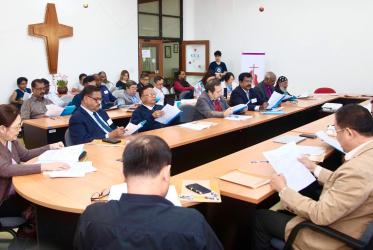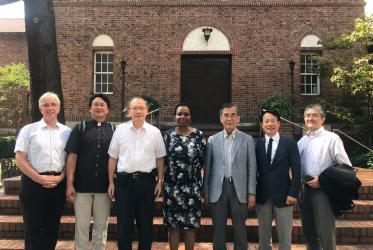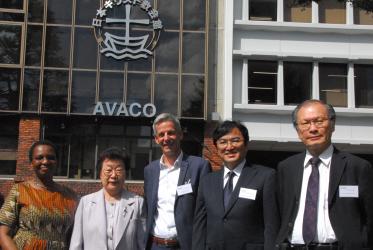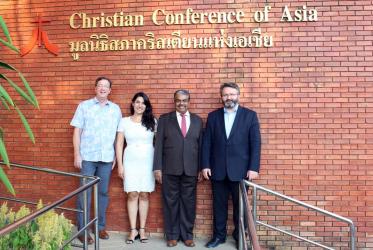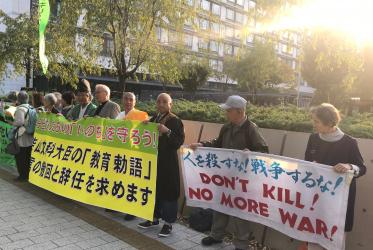Displaying 1 - 20 of 39
WCC congratulates 2021 Nobel Peace Prize laureates
14 October 2021
WCC offers prayer during Japanese peace conference
11 March 2021
In Japan, spirit of koinonia deepens
26 September 2019
In Japan, theologians reflect on today’s global manifestations of racism
18 September 2019
In Japan, indigenous and ecumenical youth call for action against racism
12 September 2019
WCC condemns massacre of farmers in Philippines
12 April 2019
Peace is common denominator of all major religions
05 March 2019
WCC pilgrimage turns its eyes to Asia
04 March 2019
Conciliar Unity: Whither Vision and Direction?
14 December 2018
All pilgrim routes lead to COP24
11 December 2018

